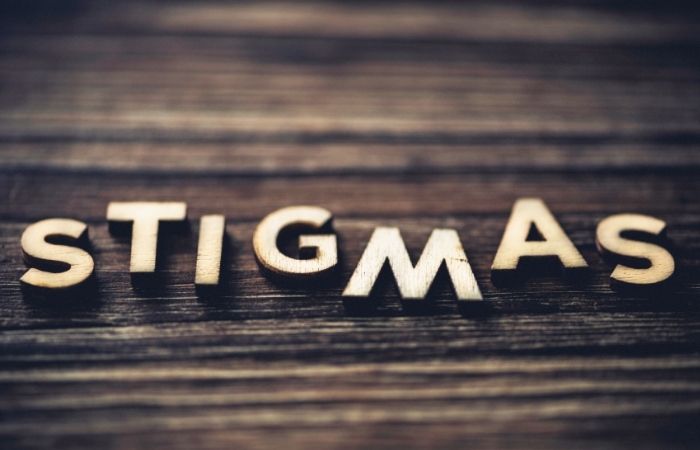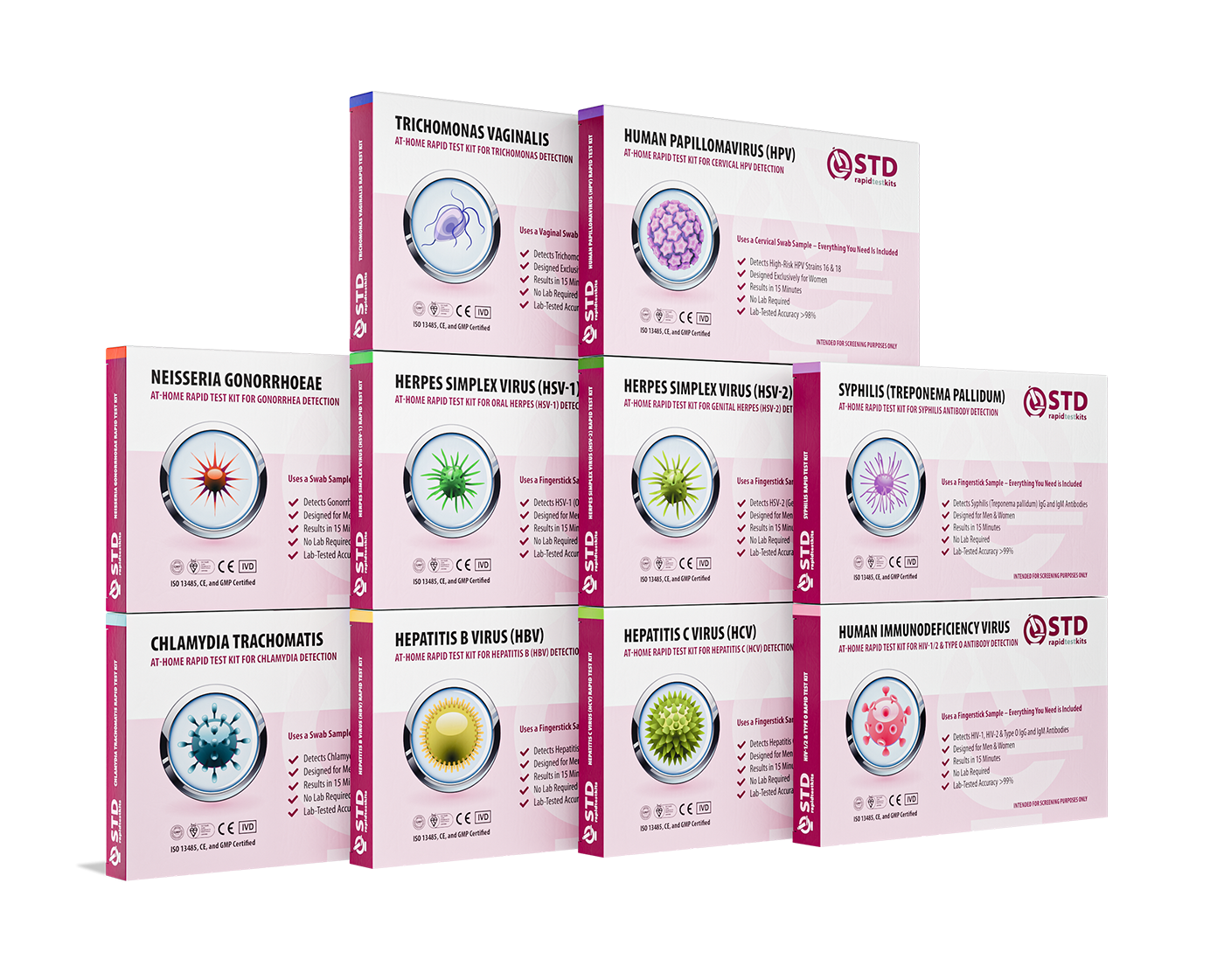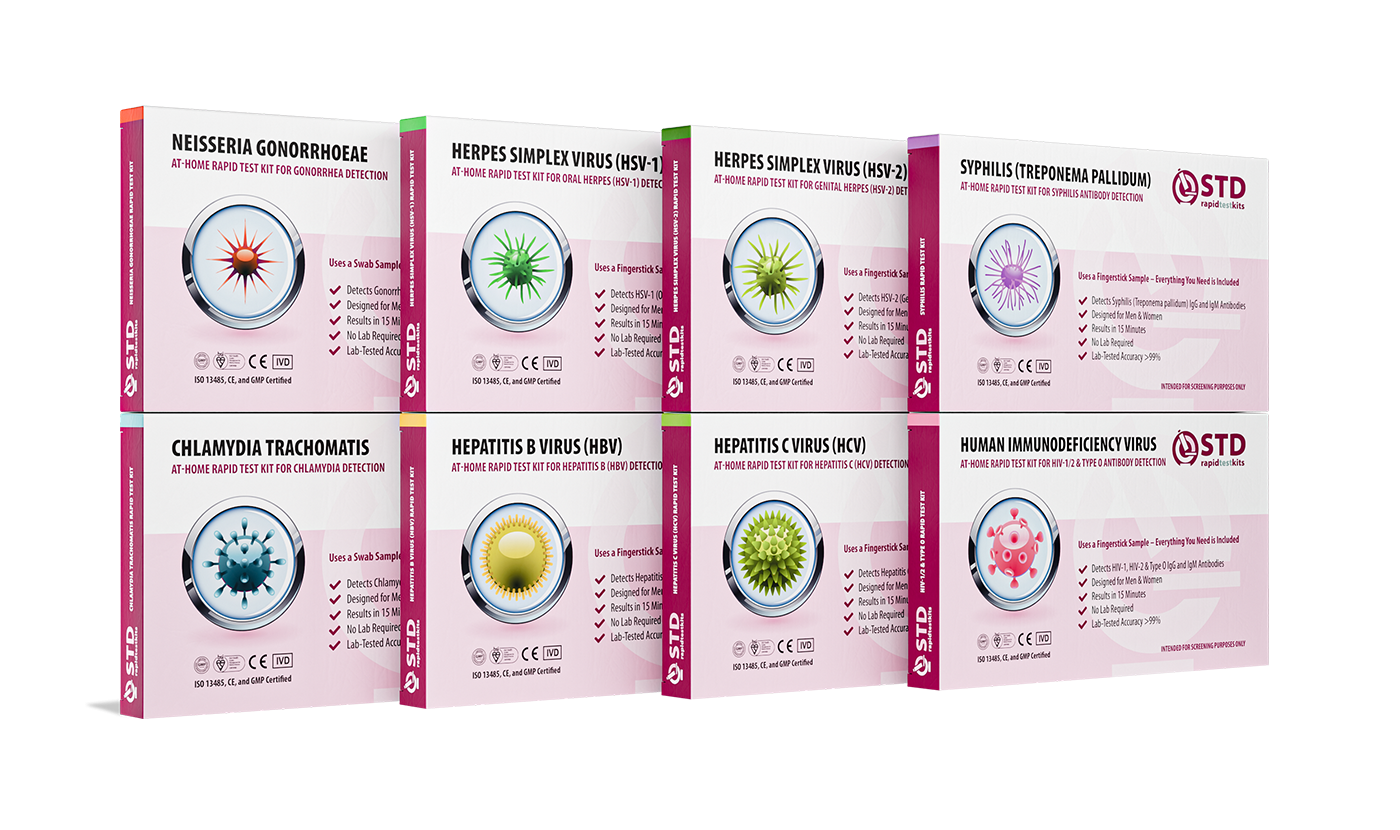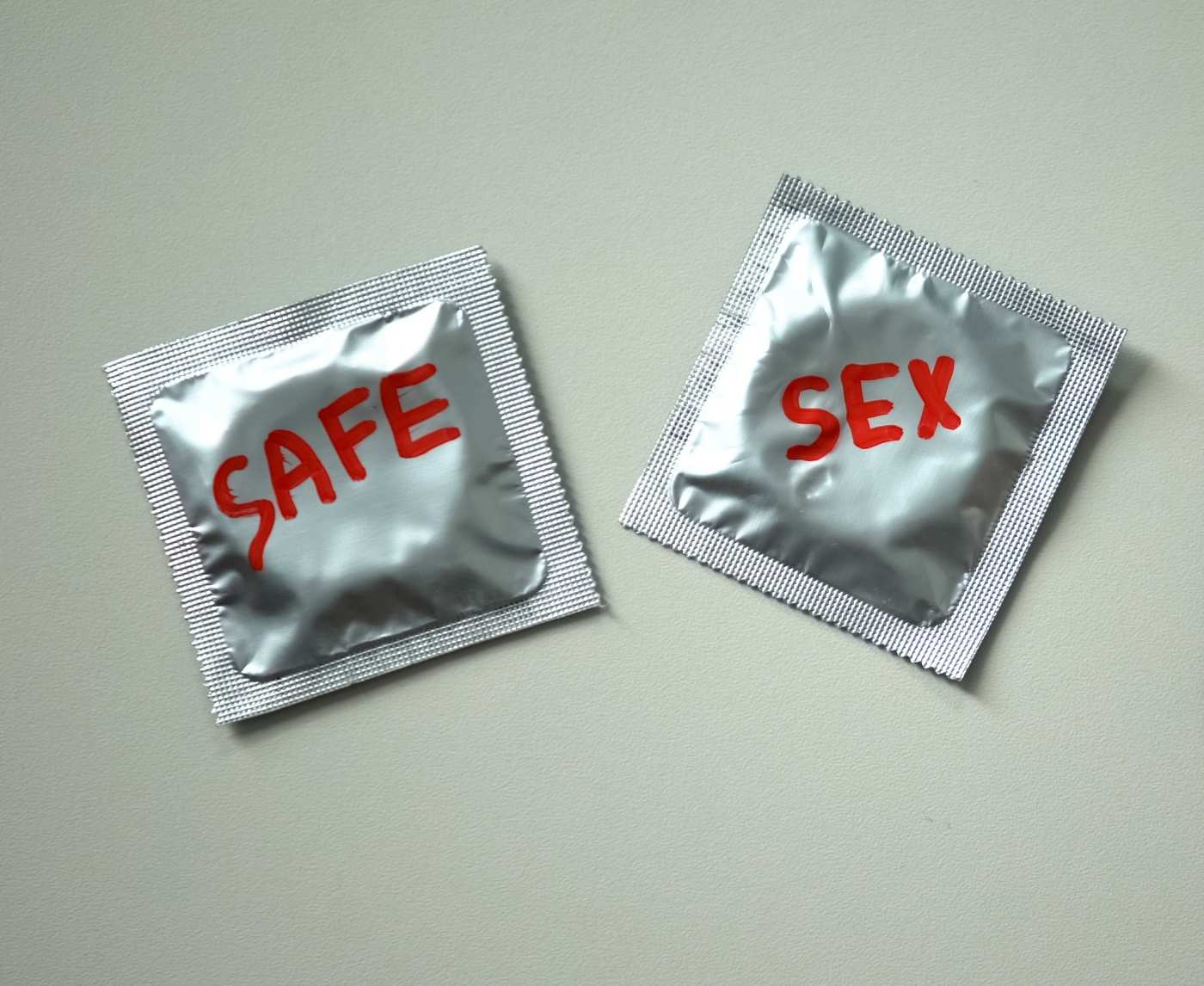HIV Home Test Kits: A Convenient and Private Way to Stay Informed
Understanding STD Stigma: Why Does It Occur?
STD stigma is highly rooted in misconceptions, moral blame, and a knowledge restriction about sexual health. Some of the most common reasons why this stigma exists are:
- Lack of Education: The majority of people inaccurately believe that STDs only occur in promiscuous or irresponsible people.
- Fear of Judgment: An STD diagnosis can create a feeling of shame, embarrassment, and isolation.
- Misinformation: Myths like "only some people catch STDs" or "you can tell if a person has an STD" linger.
- Historical Discrimination: Some groups, for example, LGBTQ+ individuals and sex workers, have historically been stigmatized out of openly talking about STDs.
According to the World Health Organization (WHO), stigma is the biggest barrier to preventing and treating STDs. There are several individuals who do not undergo testing because they are afraid of being branded or stigmatized, and this ends up increasing the chances of transmission and creating untreated infections with severe implications.

Public Health Campaigns That Are Making a Difference
Governments, nongovernmental organizations, and health care facilities worldwide have mounted innovative public health campaigns to counter STD stigma. Some of the most successful efforts are:
"AIDS: Don't Die of Ignorance" (United Kingdom, 1986)
One of the earliest mass education campaigns, this UK campaign used TV, newspapers, and national leaflets to spread basic facts about HIV/AIDS. While it generated controversy, it succeeded in raising awareness and leading to more safe sex acts.
"Undetectable = Untransmittable" (U=U)
This global campaign, organized by the Prevention Access Campaign, is based on a simple, yet powerful, message: people living with HIV with an undetectable viral load can't transmit the virus. By highlighting the fact, the campaign has helped to reduce fear, encourage testing, and dispel myths.
"Let's Stop HIV Together" (CDC, USA)
Launched by the Centers for Disease Control and Prevention (CDC), this campaign features real people living with HIV sharing their own experiences. Putting a face to the issue, the campaign makes it more personal and inspires empathy and tolerance.
"It Starts With Me" (UK, 2013-Present)
Conducted by Terrence Higgins Trust, this campaign promotes regular testing, safe sex, and the utilization of free condoms and testing kits. Its social media campaign targets young people extremely well, making sexual health talk the norm.
"No Shame in Sexual Health" (Planned Parenthood, USA)
This online campaign fights sexual health stigma through the use of powerful messaging and real-life testimonials of people who have visited for testing and treatment without shame.
These campaigns are not solely about education—they change cultural attitudes and make STD testing mainstream. But overnight, stigma does not dissipate, which is why it is imperative to continue efforts.
Check Your STD Status in Minutes
Test at Home with Remedium7-in-1 STD Test Kit

 For Men & Women
For Men & Women Results in Minutes
Results in Minutes No Lab Needed
No Lab Needed Private & Discreet
Private & DiscreetOrder Now $129.00 $343.00
For all 7 tests
Breaking Barriers: How Public Health Initiatives Are Changing the Conversation
Public health professionals all concur: to destigmatize STDs, it takes a multi-pronged approach. Here's what's working:
Increasing Access to Confidential and At-Home Testing
One of the biggest reasons individuals shy away from STD testing is fear of being spotted at a clinic. Groups are now distributing at-home STD testing kits, which enable individuals to test in the comfort of their own homes and get rapid, reliable results.
Example: STD telehealth visits grew 300% during the pandemic, proving that discreet, at-home alternatives engage larger numbers of individuals in taking control of their health.
Sharing Knowledge on Social Media
Platforms like TikTok, Instagram, and YouTube are transforming the way young people learn about sexual health. Instead of cringe-worthy classroom lectures, physicians, influencers, and activists are offering STD education in engaging, entertaining ways.
Example: Sex health specialist Dr. Carlton has collected millions of views on TikTok by sharing how to combat myths about STDs and advocating frequent testing.
Encouraging Open Conversation Among Medical Providers
Implicit prejudice regarding STDs is found in many healthcare professionals. Trainers should prepare doctors, nurses, and counselors to use unprejudiced language and routine STD screening as standard practice.
"We need to make STD testing as normal as getting a routine health check-up. The more we make it routine, the less people will fear and stigmatize it.": Dr. Anne Rosenthal, Infectious Disease Specialist.

The Effect of Public Health Interventions: What the Data Indicate
- 80% of those who participated in CDC's "Let's Stop HIV Together" campaign indicated they felt less stigma around HIV testing.
- Since the launch of U=U, there has been a 40% boost in HIV testing among high-risk populations.
- Public funding for public STD awareness campaigns has boosted clinic visits by 35% and partner notification by 20%.
- At-home STD testing kits have witnessed an enormous surge in first-time testers, with 1 in 3 users report that they had never tested for STDs before.
These statistics indicate that as stigma reduces, people are more likely to get tested, get treated, and engage in safer sex.
Challenges That Still Exist in Eliminating STD Stigma
While public health interventions have been able to reduce stigma, there are still several barriers to eliminating STD stigma. These are:
Residual Myths and Misinformation
Even in 2025, there remain myths like "only promiscuous people get STDs" or "you can see if someone has an STD by looking at them."
This disinformation is widespread among groups with little access to sexual health education and still carries on with fear and shame.
Example: In the American Sexual Health Association's 2023 study, they found that 47% of young adults believed STDs were only for people with multiple partners, such that myths continue to be rampant in the determination of sexual health behaviors.
Lack of Comprehensive Sex Education
The majority of U.S. schools continue to employ abstinence-only education on sex, which makes the students unfamiliar with the significance of safe sex, STD prevention, and testing.
Example: Abstinence-only states experience higher teen pregnancy and STD rates compared to states with comprehensive sex education programs.
Fear of Judgement in Healthcare Facilities
The majority of individuals—especially LGBTQ+ individuals, sex workers, and members of conservative communities—avoid STD testing due to fear of being judged by doctors and nurses.
Testimonial: "When I went to get tested, the doctor looked at me like I was dirty. I never went back.": Anonymous, 26.
Limited Access to Affordable Testing and Treatment
Even with test kits for STDs at home, affordability remains a problem for most. In low-income communities, lack of insurance coverage or economic means keeps many from getting regular testing.
Fact: The CDC projects that 21% of those with an STD delay treatment due to costs, making them more vulnerable to transmission and complications.
Check Your STD Status in Minutes
Test at Home with Remedium10-in-1 STD Test Kit

 For Women
For Women Results in Minutes
Results in Minutes No Lab Needed
No Lab Needed Private & Discreet
Private & DiscreetOrder Now $189.00 $490.00
For all 10 tests
How to Beat These Challenges: Public Health Solutions
Public health professionals, healthcare clinicians, and advocacy groups are implementing new strategies to beat the ongoing challenges of lowering STD stigma.
Strengthening Education Campaigns
One of the strongest weapons against stigma is education. If people are educated that STDs are common and curable, fear and judgment decrease.
- Schools are incorporating comprehensive sex education classes that involve candid discussion of STDs.
- Social media is being used by health professionals and online influencers to connect youth with accurate, engaging information.
- Organizations like Planned Parenthood and CDC's "Let's Stop HIV Together" provide interactive educational resources in an effort to debunk myths.
Expanding access to home STD test kits
At-home STD testing is a game-changer for people who want to have privacy and convenience. Saving time that could be used in a clinic, these kits take the fear and embarrassment out of the testing process.
Example: Companies such as STD Rapid Test Kits provide confidential, reliable at-home tests for multiple STDs, allowing individuals to be empowered to take charge of their health without shame.
Making STD Testing Common in Healthcare Environments
Doctors and nurses are being taught how to discuss STD testing in a non-judgmental, empathetic manner, rather than shaming patients.
Expert Insight
"STD testing should be approached as any other medical screening. The more we make it the norm, the healthier our communities will be.": Dr. Maria Thompson, Public Health Specialist.

Fostering Community-Based Outreach Programs
Nonprofit organizations and local health departments are offering free or low-cost testing events to reach underserved populations. A few examples include:
- Mobile testing vans taking services out to high-risk groups.
- Anonymous phone hotlines and online counseling to those with STD testing queries.
- Bilingual materials to offer inclusion in multicultural groups.
FAQs
1. Why is stigma still present for STDs?
STD stigma is, in significant measure, a product of misinformation, antiquated social norms, and stigmatophobia. It is falsely believed by many that STDs affect only select populations, so creating unwarranted shame.
2. How do I bring up STD testing with my partner?
Be open and approach the situation without accusation. Have the following kind of conversation: "I'm concerned about our health, both of us, so I think we should get tested together."
3. Do multiple partners by themselves need STD testing?
No. Everyone who's sexually active should get tested, even if it's only been one. Most STDs don't show symptoms, so regular testing is a necessity.
4. Are at-home STD test kits reliable?
Yes! At-home STD test kits are very accurate, especially when purchased from reputable sources. Many at-home tests use the same technology as clinics.
5. If I have an STD, will I have it forever?
Not always. Most STDs, including chlamydia and gonorrhea, can be cured with antibiotics. Even long-term infections such as HIV can be managed with treatment.
6. How can I help end STD stigma in my community?
Educate others, dispel myths, and share accurate information. Open conversation about sexual health makes testing and treatment more acceptable.
7. Do all STDs have symptoms?
No! Some of the most common STDs, like chlamydia and HPV, typically don't have any symptoms at all. That's why you have to get tested regularly.
8. Is it expensive to get tested for STDs?
It depends where you are going. Most clinics offer free or low-cost testing, and at-home testing kits are becoming cheaper. Some insurance also pays for testing.
9. Can I get tested without seeing a doctor?
Yes! Some health agencies offer confidential home testing, and some allow you to order one online without having to see a doctor.
10. How do I learn more about STD testing?
You can look up on trusted sites like the CDC, Planned Parenthood, or at-home STD testing companies to learn more about your options.
Check Your STD Status in Minutes
Test at Home with Remedium8-in-1 STD Test Kit

 For Men & Women
For Men & Women Results in Minutes
Results in Minutes No Lab Needed
No Lab Needed Private & Discreet
Private & DiscreetOrder Now $149.00 $392.00
For all 8 tests
Shifting the Conversation Regarding STD Stigma
The war on STD stigma is not a medical one: it's one of changing the terms of the conversation about sexual health. Public health initiatives, education campaigns, and increased availability of at-home testing are making it easier than ever for individuals to take control of their health without fear or shame.
The Key Takeaways
- STD stigma stifles testing and treatment, which exacerbates health risks.
- Public health initiatives have successfully altered language around STDs.
- More education, home testing, and access to healthcare are the best solutions.
- At-home STD test kits are a private and reliable way of taking control of your health.
What You Can Do Today
- Get tested: Either at a clinic or with an at-home STD test kit, knowledge is power.
- Talk about sexual health: Encourage open conversations and combat stigma.
- Learn and teach others: Share this post or visit credible health sources to find out more.
STD stigma only exists because we allow it. The more we normalize testing and education, the healthier—and more confident—we all become.
Sources
1- AIDS: Don’t Die of Ignorance
2- HIV/AIDS Public Health Campaigns in Italy
3- Douglas Kirby and Comprehensive Sex Education










